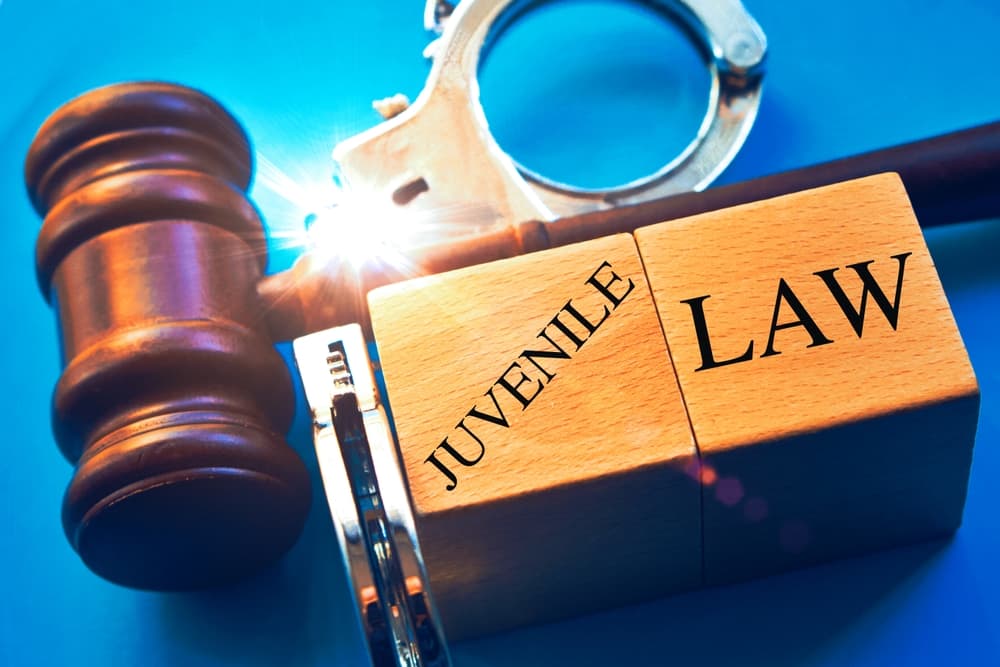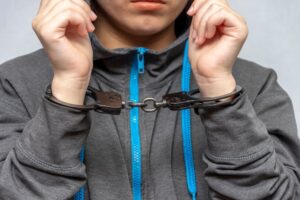Juvenile Rights During Police Encounters: A Primer

Juveniles are often charged with crimes such as theft, vandalism, drug possession, and assault. These offenses can lead to serious consequences even at a young age. When a juvenile is stopped by police, they have important rights, including the right to remain silent and the right to have an attorney present during questioning. Police must also inform the juvenile of these rights before any interrogation. Understanding and exercising these rights is vital to protect the minor from self-incrimination.
A juvenile defense attorney plays a key role by explaining these rights, investigating the case, and ensuring that the juvenile is treated fairly. The attorney can challenge improper evidence, negotiate for reduced charges, and advocate for alternatives focused on rehabilitation rather than punishment. Having skilled legal help can make a significant difference in protecting the juvenile’s future and achieving the best possible outcome in their case.
Key Takeaways
-
Common juvenile charges in Los Angeles include theft, vandalism, assault, drug possession, and cybercrimes, all of which can carry serious consequences.
-
Juveniles have rights during police encounters, including the right to remain silent, the right to an attorney, and protection against unlawful searches or coercion.
-
A juvenile conviction can lead to detention, probation, community service, and long-term effects on education, employment, and housing.
-
Strong legal defenses may include lack of intent, mistaken identity, false accusations, or violations of rights during the arrest or investigation.
-
A skilled juvenile defense attorney can fight for rehabilitation-focused outcomes, protect the minor’s record, and help secure a better future.
Most Common Types of Juvenile Offenses

Juveniles can face a wide range of criminal charges depending on the circumstances of the offense and the laws in their area. Some of the most common charges involve theft, vandalism, drug offenses, and assault. These crimes can lead to serious consequences even though the accused is under the age of 18.
Theft is one of the most frequent charges for juveniles. This includes shoplifting, stealing personal items, or breaking into property to take something. Even a minor theft offense can lead to juvenile court involvement and potentially time in a detention center. Vandalism is another common charge. This usually involves damaging or defacing property, such as spray-painting buildings, breaking windows, or destroying public or private property.
Drug-related offenses are also common among minors. These include possession of illegal substances like marijuana, prescription drugs without a prescription, or other controlled substances. Juveniles may also be charged for drug paraphernalia or being under the influence while in school or public places.
Assault and battery charges can arise from physical fights, even among classmates or peers. If someone is hurt or there is a threat of violence, a juvenile can be charged with assault. In more serious cases, charges can escalate to aggravated assault, especially if a weapon is involved or if the injuries are severe.
In some situations, minors are also charged with trespassing, underage drinking, disorderly conduct, or making threats. Cybercrimes, such as hacking, online bullying, or sharing inappropriate content, are increasingly common as technology plays a larger role in daily life.
Although juvenile courts often focus on rehabilitation instead of punishment, these charges can still have long-lasting effects on a young person’s future. A criminal record can impact school, jobs, and even college admissions. In some cases, if the crime is serious enough, a juvenile may even be tried as an adult.
Because the stakes are high, it’s important for young people and their families to understand their rights and options. An experienced juvenile defense lawyer can explain the legal process, build a strong defense, and work toward a resolution that supports the minor’s future.
What Rights Does a Juvenile Have During a Police Encounter?
When a juvenile is stopped or questioned by the police, they still have legal rights, even though they are under the age of 18. These rights are similar to the rights that adults have, and it’s important for both minors and their families to understand them.
First, juveniles have the right to remain silent. If a police officer begins asking questions, the minor does not have to answer them. This is a protection under the Fifth Amendment. Anything the juvenile says can be used against them in court, so staying silent is often the best choice until a lawyer is present.
Second, a juvenile has the right to have an attorney. If they are arrested, they can ask to speak to a lawyer before answering any questions. If the juvenile or their family cannot afford an attorney, one will be provided by the court. Police are supposed to stop questioning once the juvenile asks for a lawyer.
In many cases, police must also inform a juvenile of their Miranda rights before they are interrogated while in custody. This includes the right to remain silent and the right to an attorney. If these rights are not clearly explained, anything the juvenile says may not be allowed in court.
Juveniles also have the right to be treated fairly and respectfully during a police encounter. They should not be threatened, physically harmed, or tricked into confessing. In some areas, law enforcement officers must make efforts to contact a parent or guardian once a minor is taken into custody.
While minors can be searched, police usually need a reason, such as suspicion of illegal activity or a school policy allowing searches. However, searches must still follow legal rules, and anything found illegally may not be used in court.
Understanding these rights is key for protecting a juvenile’s future. Police encounters can be stressful and confusing, especially for young people. Knowing when to stay silent, when to ask for a lawyer, and how to behave can make a big difference in the outcome of the case. A qualified juvenile defense lawyer can also work to ensure that the juvenile’s rights were respected and defend them throughout the legal process.
Consequences of a Juvenile Conviction
When a juvenile is convicted of a crime, the consequences can be serious and long-lasting. These consequences are usually divided into two categories: penalties ordered by the court and collateral consequences that affect the minor’s life in other ways.
Court-ordered penalties vary depending on the type of offense, the juvenile’s age, and whether they have a prior record. Some common penalties include probation, mandatory counseling, community service, restitution to victims, or time in a juvenile detention facility. Probation may require the juvenile to follow strict rules, such as attending school regularly, obeying a curfew, and staying away from certain people or places. If those rules are broken, the court can impose more severe penalties.
In more serious cases, a juvenile can be sent to a long-term facility or be placed under house arrest. For very severe crimes, a minor can even be charged and sentenced as an adult. This means they can face time in adult prison and have a permanent criminal record.
Beyond court-imposed penalties, there are collateral consequences that can affect the juvenile’s future. A conviction can make it harder to get into college, apply for scholarships, or qualify for certain jobs. It may also affect eligibility for public housing or financial aid. Some convictions, especially those involving drugs or violence, can also lead to suspension or expulsion from school.
Even if the juvenile completes their sentence, the record of the conviction may still follow them. Although some records can be sealed or expunged, not all are eligible, and the process can take time. Until then, background checks can show the conviction and create barriers for the juvenile as they grow older.
In addition to these long-term effects, a juvenile conviction can cause emotional stress, damage family relationships, and lower self-esteem. The legal process itself can be overwhelming and confusing, especially for young people who may not fully understand what’s happening.
That’s why it’s important for families to take a juvenile charge seriously and seek legal guidance. A skilled defense lawyer can fight for the best possible outcome, minimize penalties, and work to protect the minor’s future opportunities.
What are the Best Legal Defenses to Juvenile Charges?

When a juvenile is charged with a crime, there are several legal defenses that a skilled defense attorney can use to fight the charges. The best defense depends on the facts of the case, but some of the most common include lack of intent, mistaken identity, false accusations, and violation of rights.
One of the strongest defenses in juvenile cases is lack of intent. Many crimes require the accused to have acted on purpose or with the knowledge that what they were doing was wrong. If a minor did not mean to commit a crime or didn’t understand the consequences of their actions, the defense can argue that the necessary intent was missing. This can be especially effective for younger juveniles or in cases involving peer pressure or immaturity.
Mistaken identity is another common defense. Sometimes, juveniles are wrongly identified by witnesses or accused based on someone else’s actions. A defense lawyer may use surveillance footage, phone records, or alibi witnesses to show that the minor was not at the scene or could not have committed the crime.
False accusations can also happen, especially in situations involving fights, bullying, or school discipline. In some cases, another person may blame the juvenile to avoid getting in trouble themselves. A defense attorney can cross-examine witnesses, point out inconsistencies, and present evidence to show that the accusation isn’t true.
A strong legal defense may also focus on violations of the juvenile’s rights. If police did not read the juvenile their Miranda rights, conducted an illegal search, or continued questioning after the minor asked for a lawyer, the evidence gathered may not be allowed in court. This can lead to charges being reduced or dismissed.
Another defense is lack of evidence. Prosecutors must prove guilt beyond a reasonable doubt. If the evidence is weak, unreliable, or missing, a defense attorney can argue that there isn’t enough proof to support a conviction.
Each case is different, and the right defense strategy depends on what happened and how the law applies. A good juvenile defense lawyer will carefully investigate the case, protect the minor’s rights, and fight for the best possible outcome, whether that means dismissal, reduced charges, or alternatives to detention.
How Can a Juvenile Crimes Lawyer Help?
When a juvenile is charged with a crime, having an experienced juvenile attorney can make a significant difference in the outcome of the case. Juvenile attorneys understand the unique laws and procedures that apply to young people in the justice system. Their role goes far beyond simply representing the juvenile in court.
One of the first ways a juvenile attorney helps is by explaining the legal process and the charges in a way that both the minor and their family can understand. The criminal justice system can be confusing and intimidating, especially for young people who may not fully grasp what is happening. The attorney acts as a guide, making sure the juvenile knows their rights and what to expect.
A juvenile attorney will thoroughly investigate the case. This includes reviewing police reports, gathering evidence, interviewing witnesses, and checking if the juvenile’s rights were respected during the arrest or questioning. If the police made mistakes, such as failing to read Miranda rights or conducting an illegal search, the attorney can argue to have evidence excluded or the case dismissed.
In court, the attorney advocates for the juvenile by presenting the best possible defense. This may involve challenging the prosecution’s evidence, negotiating for reduced charges, or seeking alternative sentences focused on rehabilitation rather than punishment. Since the goal of the juvenile justice system is often to help minors learn from their mistakes, an attorney can push for programs like counseling, community service, or probation instead of detention.
A juvenile attorney also works to protect the minor’s future. Convictions can have lasting consequences, such as difficulty in school or finding a job. The lawyer can advise on how to seal or expunge records when possible, helping the juvenile avoid long-term damage to their reputation.
Furthermore, the attorney often communicates with the family, school officials, and probation officers to build a support system around the juvenile. This team approach can improve the chances of a positive outcome.
Overall, a juvenile defense attorney provides invaluable legal knowledge, protects the minor’s rights, builds a strong defense, and helps ensure the juvenile’s future is not unfairly harmed by the charges. Their support is essential in handling the juvenile justice system and working toward the best possible resolution.
Talk with an Experienced Juvenile Crimes Defense Attorney Right Away
If you or someone you love is currently facing a juvenile charge, it’s essential to have legal representation in your corner right away. A knowledgeable criminal lawyer in LA can go over your rights and options and pursue the best possible result in your case. They can also represent you during all legal proceedings and fight hard for your interests.


